Staying Humble: The Beginning of a New Era in FinTech
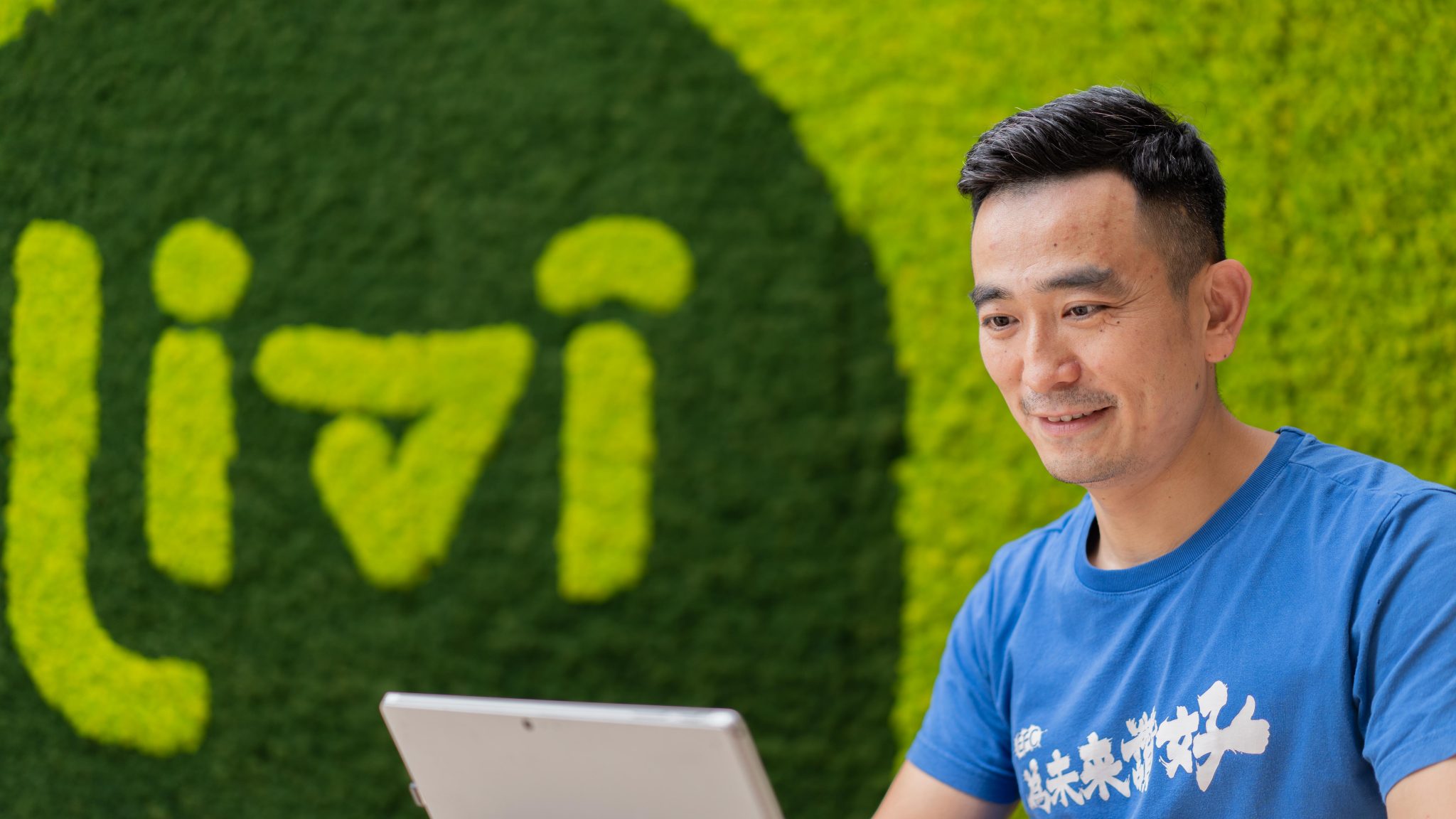
Michael Wang (FMBA 2009) is a 2009 graduate of MBA Programme in Finance (FMBA), jointly run by The Chinese University of Hong Kong (CUHK) and Tsinghua University. With more than 20 years’ experience in the banking industry, Michael has garnered considerable expertise in both financial services and digital banking across mainland China and Hong Kong. Currently he is the CEO of livi, a virtual bank backed by Bank of China (Hong Kong). Maintaining a humble and optimistic outlook, Michael’s goal is to patiently create a new era of FinTech in Hong Kong, one small step at a time.
FMBA: Unforgettable and Eye-opening Learning Journey
Originally from Hubei province, Michael holds a bachelor’s degree in International Finance. After graduating, he joined Bank of China in Shenzhen as General Manager of the Finance Department. He participated in several major projects including the bank’s equity listing reform, the development of an IT blueprint, and forming partnerships with international banks. After several years, Michael decided to invest in himself and apply for CUHK’s FMBA programme.
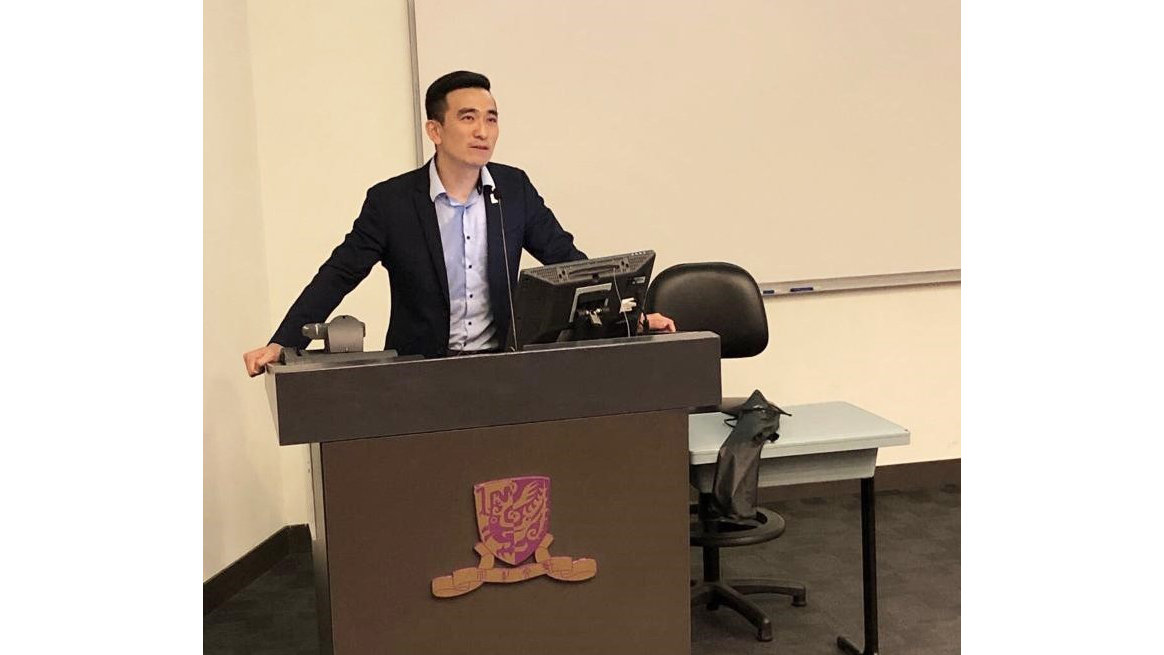
Michael was invited to share his experiences with students and fellow alumni in the admission event.
Michael calls himself a ‘bad student’ for having to repeat a subject because he constantly needed to work overseas. However, he still remembers the lessons of the year. “In the past, I was most afraid of accounting because the textbooks were so thick – by the time I got to the debt and owner’s equity chapter, I had already forgotten the previous chapters on assets and stocks. However, FMBA professors presented complicated financial calculations on a balance sheet, making all the intricate logical relationships clear and easy to understand,” he explained. “The FMBA programme combined finance and management into a rich curriculum, and the courses took place across Shenzhen, Beijing and Hong Kong. I found it very interesting.”
Michael also highly appreciated the programme’s balance of academic and practical weight. “When discussing financial theories, professors would cite examples from Hong Kong, mainland China and the global market. Analysing case studies such as the 1987 stock market crash and the success factors of Li & Fung Group truly opened my mind.”
“People are deterred by leaders who try to be Superman. Staying humble helps you build a cohesive team that works together to solve problems!” — Michael Wang
Embrace the Risk of Facing Uncertainty
Soon after his graduation Michael became Bank of China’s largest sub-branch in Shenzhen as General Manager, where he accumulated rich experience in internet finance and cross-border financial services. In 2015, he was invited to join China’s first digital bank, WeBank.
Moving from traditional physical banking to the trendy model of virtual banking was not a rash decision for Michael. He was simply following his passion for taking new challenges. “The uncertainty that comes with managing a brand new organisation, with a new culture in an emerging sector was the greatest challenge for me.” Despite the steep learning curve, Michael has proved to be more than competent and led the team to establish a 2B product line in just two years, further expanding the business portfolio.
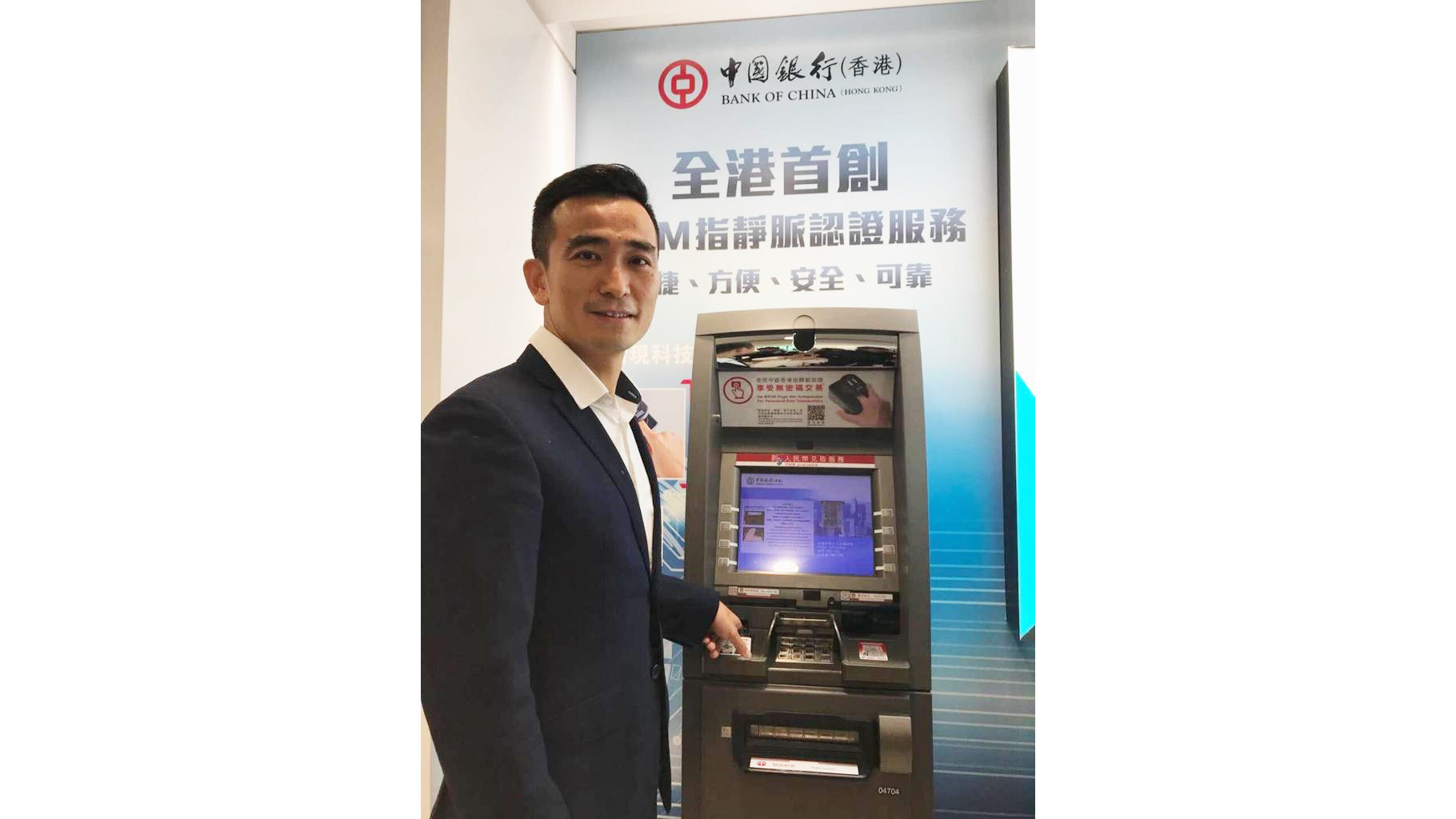
Michael attends the launch event of Bank of China’s “Finger Vein Authentication”.
Starting from Zero: Learning While Keeping Moving
Considering the immense opportunities for cross-border financial business, Michael joined the E-Finance Department of Bank of China (Hong Kong) in 2017 as the Head, leading the development of virtual banking. livi is now in its final stage of development and, together with the seven other licensed virtual banks, is set to drive Hong Kong’s FinTech industry, providing new experiences for customers and promoting financial inclusion in its mission.
“My experience at WeBank was very helpful to me, but starting a new virtual bank from scratch was a whole new challenge.” The first hurdle was recruitment. With eight virtual banks entering the market at one time, the competition for talent was high in all fields, including FinTech, product innovation, and risk and compliance management. The next challenge was the system. IT structures within traditional banking cannot easily be applied to virtual banks, so new systems need to be developed internally or outsourced, and then integrated. “Now I know how easy it is to raise questions and how hard it is to find solutions.”
Michael compared the experience of starting from scratch to driving a car with no parts. He and his team had to assemble the wheels and engine, fill up the gas tank, revise the route blueprint to keep up with FinTech trends – all while driving a car.
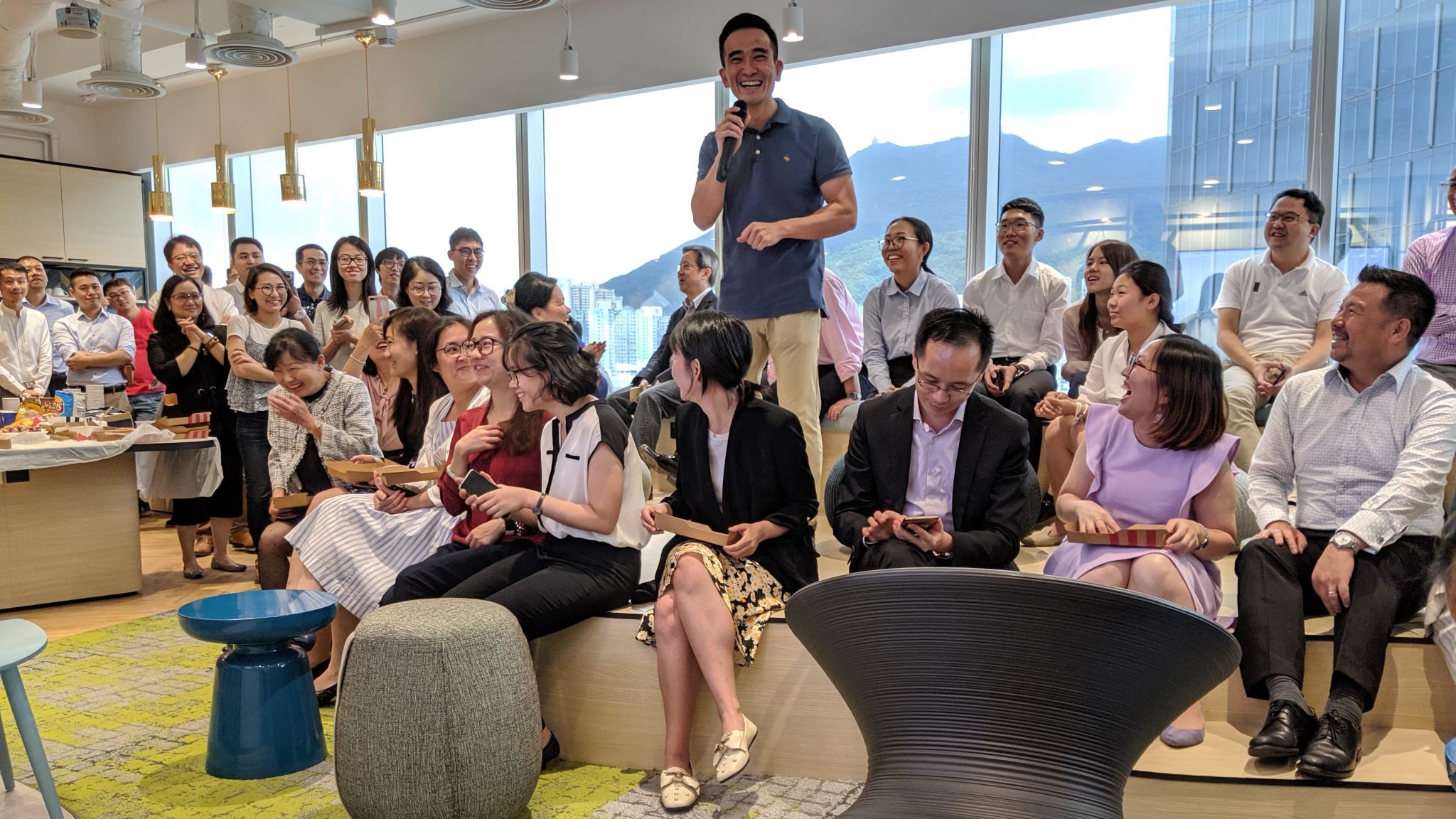
“People First” is one of the key pillars for the livi team. As CEO, Michael often hosts town hall meetings to share his ideas and maintain mutual communications with team mates.
Don’t Be a Hero: Be a Team
livi’s logo design and colour scheme portray a lively image. Its name, which comes from the word ‘living’, refers to a lifestyle bank that integrates banking seamlessly into consumer habits, reshaping how people think about and engage with finance. In this new paradigm, users are rewarded for planning the future and they can save money or spend at ease, enjoying every moment of their lives.
Even though the competition is fierce, Michael remains optimistic because livi’s shareholders have abundant resources. “Bank of China (Hong Kong) is the largest bank in Hong Kong in terms of customer base and sales channels, which is a good complement for livi. JD Digits provides solid technical support and Jardine Matheson has the biggest retail network in Hong Kong. Backed by these partners, we can provide improved financial services and accelerate digitalisation in the retail sector.” In addition to personal banking, livi also focuses on helping SMEs develop through simple, easy-to-use banking services riding on innovative technology.
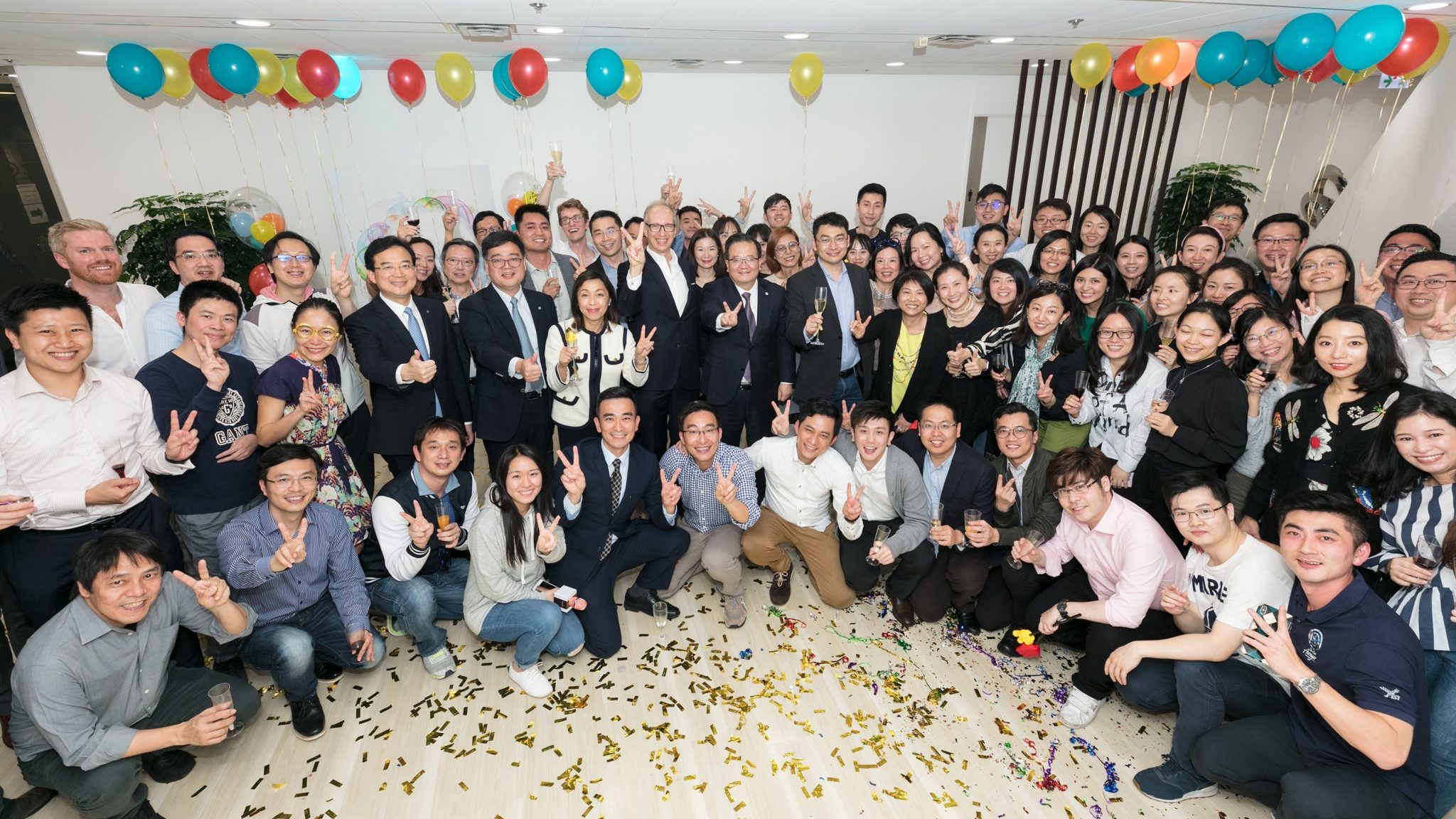 Michael (first row; 5th from left)and his team celebrate as the Hong Kong Monetary Authority grants livi a virtual banking license.
Michael (first row; 5th from left)and his team celebrate as the Hong Kong Monetary Authority grants livi a virtual banking license.
Michael believes that while virtual banking and traditional banking are two very different businesses, they complement each other well – just how supermarkets and convenience stores do. In fact, the greatest challenge in the initial stages of launching a virtual bank is consumer acceptance of the market. “People get used to tangible products which they can see and touch. We need time to convince the market that virtual banks are just as real and safe as physical ones.”
Looking back on livi’s journey, Michael had to handle many problems large and small, every single day. His approach throughout has been to stay positive and humble. In his words, “People are deterred by leaders who try to be Superman. Staying humble helps you build a cohesive team that works together to solve problems!”
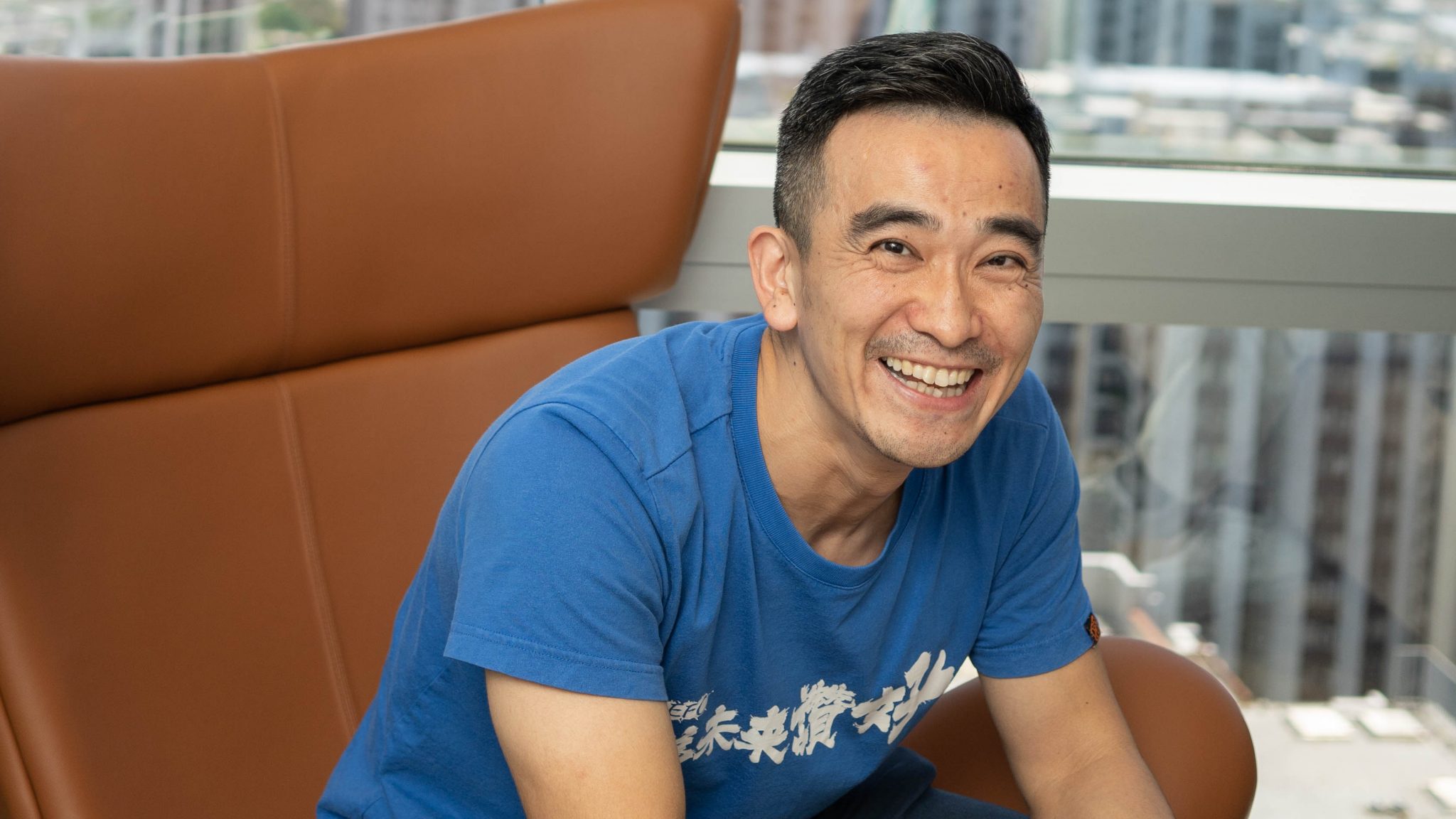
This article first appeared in CUHK Business School Alumni Portal, republished with permission from Alumni and Corporate Affairs Office, CUHK Business School.

